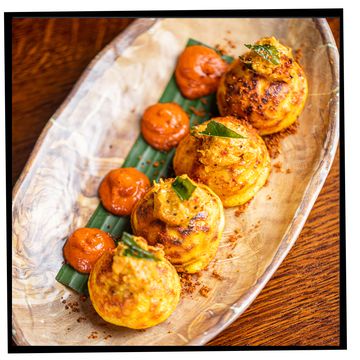It is a truth almost universally acknowledged that the Duchess of Cambridge is a 'jolly good thing' for Britain. Paeans have been written to her beauty, her radiant smile, her glorious tresses, and those mystifying espadrille wedges.
What has yet to be understood, though, is the Duchess's explosive effect on what in Britain we still call, somewhat quaintly, the 'class system'. Karl Marx has been undone: The Middleton family has singlehandedly redefined the rigid triangle of social strata that the German sociologist and philosopher was so fixated upon.
Catherine Elizabeth Middleton, aka the Duchess of Cambridge, has made it possible—in theory, at least—for anyone, from anywhere, to become the Queen of England. Ever since an act of 1772 made it a requirement for royal descendants to seek the reigning monarch's consent to marry, the principle of 'marrying one's own' has governed royal alliances. The last commoner to succeed to the British throne was Anne Hyde, who married the future King James II in 1660. But when Kate Middleton sashayed down that St Andrews catwalk wearing a see-through dress in 2002, the country (and, presumably, the monarchy) began to acknowledge the possibility of a commoner succeeding to the British throne. Since then, she and her family have given rise to a whole new class of Brit—non-aristocratic, comfortably-off 'already haves' who want to 'have' more. And it's status, not commercial gains, that they crave. The Upper Middleton classes, or UMs, have their eyes on the prize: royalty at best, aristocracy next and then, as a last resort, the suitably loaded (with an emphasis on private planes and ski lodges).
UMs know that social acceptance and status can be gained only via marriage. So far, so Thackeray, Austen, and Wharton. But not even those keen social observers could have conjured the UMs. They are a phenomenon born of a society in flux and of a monarchy that has been, until very recently, in decline. They bring with them neither vast dowries nor social standing, but what they do offer is close-knit family, reliability, and a return to that old-fashioned British trait of 'niceness', a trait for which, it should be said, the upper classes are not known.
Life for Britain's newly anointed Upper Middleton class is all about destination: social, geographic, and economic. Its members are not so much upwardly mobile as upwardly trajectile. This sub-class has a strategist in its midst who is almost always 'Mum'. The Upper Middleton mother is the social-class equivalent of the Tiger Mother. UMs didn't get where they are thanks only to Air Miles, fake tans, good teeth, blow-dries, and private schooling. Think of the UM mother as Churchill standing beside a big social map and slowly but methodically shunting her children into the right places at the right time.
UMs are not necessarily privately educated from birth. If it's possible, the UM mother puts them into the local primary school, which she describes as 'incredibly cozy'—by which she means incredibly middle class, with the odd tradesman's offspring and village local sprinkled in to 'keep it real'. UMs spend a good deal of their time with 'civilians' and encourage their children to do the same. This is not only because they know how important 'the common touch' will be later on, but also because, in truth, they are among their own, though they would never admit it.
By the same token, UMs like to keep their children at home until they are between the ages of 11 and 13; this is because, in direct contradiction to the upper classes, they actually like their offspring. UM parents know that the pre-teenage years are a critical time for what they think of as 'programming' (formerly known as learning manners). This includes an intensive period of tutoring in everything from tennis to conversational French or, more daringly, Mandarin. When a UM mum judges her cubs to be ready for 'social mingling,' she packs them off to coeducational establishments: Bradfield, Midfield, Bryanston, or Marlborough. UM mums view spending time in these edu-social environments as the best way for their children to meet people.
UM mothers are not overtly pushy. They are not the chatty mums in Prada at the prep-school gates, but the poised, slightly reserved ones who sit in their cars and wait for their children. Always 'too busy' running the small family business to make it to any parents' socials, they are known generously by some as enigmatic and rather more unkindly by others as standoffish. Their children are perfectly turned out, polite, and, dare we say it, slightly boring. They have nice manners (drilled into them by you-know-who), are popular, attend school parties with perfectly wrapped gifts, and get decent grades.
In short, the Upper Middleton classes embody that most deplorable of British traits: smugness. UMs, though, are quintessential 'swans': there is a lot of frantic paddling beneath the surface to keep up appearances. They have housekeepers and cleaners, but are not above getting their hands dirty and sewing on school nametags themselves. UMs are a stealth class: One never knows what they are thinking or going to do next.
From: Elle US












